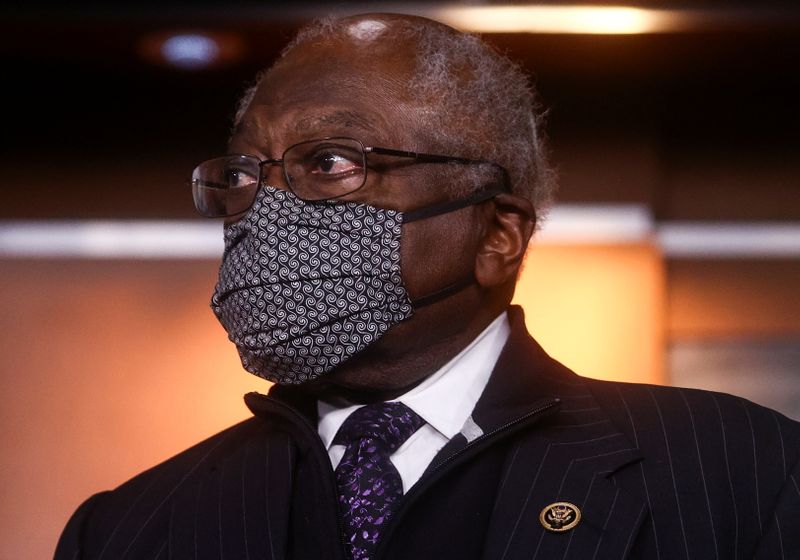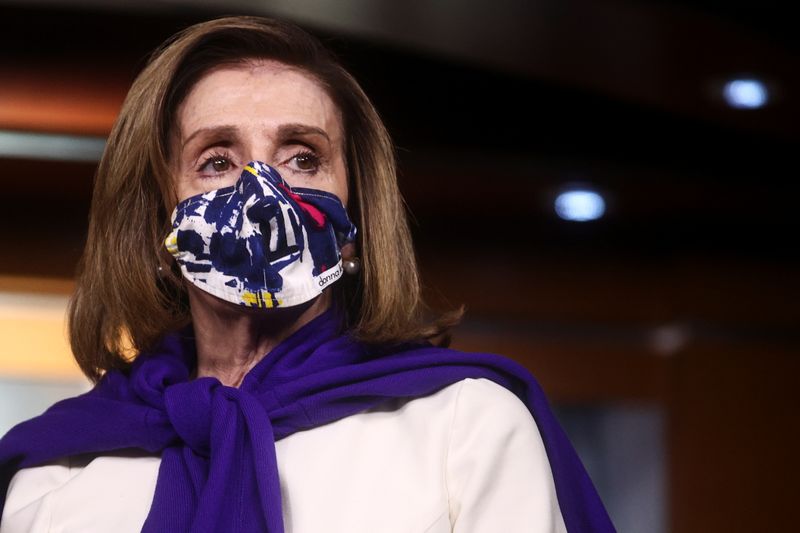WASHINGTON (Reuters) - Democrats in the U.S. House of Representatives voted on Wednesday to keep House Speaker Nancy Pelosi in her job for another two years, despite the party losing seats to Republicans in the Nov. 3 election.
The full House still must vote for speaker in early January, when Republicans will put up their own candidate for the job, but are likely to lose since they will be in the minority in the 435-seat chamber.
As speaker, Pelosi, 80, sets the agenda in the House and is second in line for the presidency should there be a vacancy.
During the virtual closed-door meeting of House Democrats at which she was chosen by a voice vote with no opponents, Pelosi said one of her top priorities would be passing a law enforcement reform bill, along with legislation addressing healthcare and the environment.
"We have the coronavirus here that shows the injustice in our healthcare system that we must address to crush the virus, to honor our heroes, to put money in the pockets of the American people," Pelosi said, according to remarks released by her office.
At a news conference, Pelosi sidestepped a question about whether this would be her last term as speaker, but acknowledged she pledged in 2018 to step aside as speaker after four more years. "I don't want to undermine any leverage that I may have but I made the statement," she told reporters.
Democratic President-elect Joe Biden called Pelosi to congratulate her, a statement from his office said. Biden said "he looks forward to working with her and Democratic leadership in the House on a shared agenda to get COVID-19 under control and build our economy back better," the statement said.
Democrats have been at odds for months with Republicans over a new pandemic aid bill. If the two sides fail to reach an agreement in the next few weeks, it will likely be at the top of the agenda in early 2021.
Also re-elected to the House Democrats' team were Majority Leader Steny Hoyer, Majority Whip James Clyburn and others currently holding leadership jobs.
Leading up to the election, Democrats were optimistic they would build on their 232-197 majority, with one Libertarian and five vacancies.
Instead, with the outcome of some races still to be determined, Democrats could possibly lose up to a dozen or so seats, making it more difficult for them to push their legislative agenda through the House.

